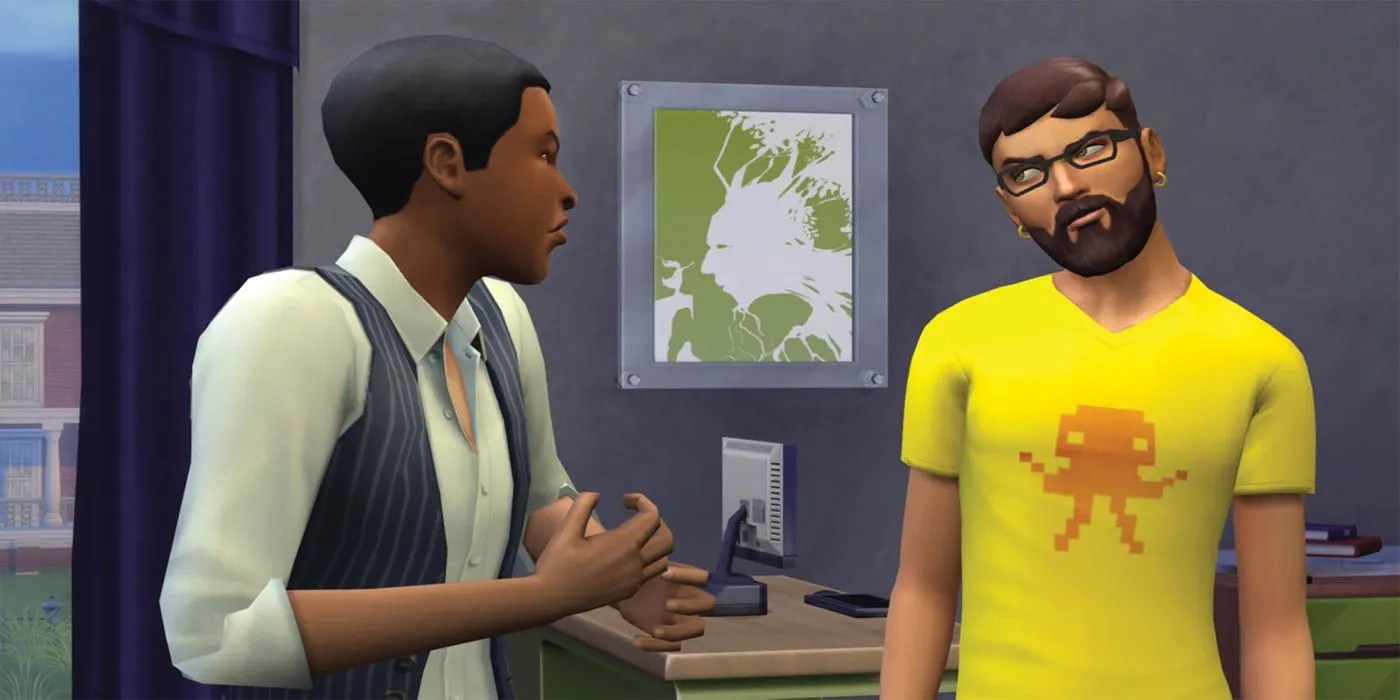The entireSimsfranchise is designed to create experiences that simulate life. FromThe SimstoThe Sims 4,changes and additions have been made to create an immersive and realistic gameplay experience - even with the addition of magic andStar Warslore. Outside the traditional “traits” system that players can use to determine their Sim’s personality,The Sims 4introduced the “emotions” mechanic that changes a Sim’s emotional state. With the development ofThe Sims 5- aka “Project Rene” -The Sims' gameplay could be made more realistic by adding mental health mechanics.
While Sims can get sick, die, and experience the natural effects of aging, their mental and emotional states are relatively predictable. AlthoughThe Sims 4: Get to Workintroduced an interactive medical career that simulates a variety of illnesses, there is no actual need to keep track of a Sim’s overall health. Given the franchise’s commitment to realistic gameplay, it makes sense to add a layer of gameplay inThe Sims 5that keeps track of a Sim’s mental health and introduces a variety of mental health conditions and healthy habits.

RELATED:The Sims 4 Going Free-to-Play Could be Huge for the Series
How Sims 5 Mental Health Mechanics Could Build On Existing Franchise Elements
WhileThe Simsfranchise has never had explicit mental health mechanics, certain traits, emotions, or needs can be manipulated to change a Sim’s mental state. For instance, inThe Sims 4,the “Gloomy,” “Hot-Headed,” and “Erratic” traitsappear to have been added to simulate mental health conditions that affect a Sim’s daily life. Specific mental effects appear with low needs. InThe Sims 2,if a Sim’s social need hits zero, a hallucinatory bunny will appear, and other Sims will become concerned. InThe Sims 3, low social needs create a “Desolate” status, compelling the Sim to talk to objects.
InThe Sims 4,Sims can feel emotionslike fear, embarrassment, and grief for Sims who have died - although these emotional states never particularly correlate to active gameplay. While adding mental health needs might seem like a big jump forThe Sims,the franchise already has built-in mechanics that would tie in nicely. For instance,The Sims 2: Universityintroduced a psychology degree track that could be reintroduced inThe Sims 5with a new therapy career path. InThe Sims 4,Sims can gravitate to specific activities that can become hobbies, creating a natural rhythm for self-care and habit-building.

How The Sims 5 Could Create More Immersive Gameplay With Mental Health Mechanics
Although very few details are known aboutThe Sims 5,adding mental health mechanics would greatly benefit existing gameplay. For instance,The Sims 5could add a new “stress” need that could fluctuate based on a Sim’s schedule, personal life, and habits. For instance, a teenage Sim with a busy schedule might become anxious, either giving the Sim a new “anxious” moodlet or the “Squeamish” or “Paranoid” traits that already exist. An elderly Sim who lives alone could receive a new “depressed” moodlet that builds on the “Sad” and “Lonely” traits. In this way,The Sims 5could add specific elements that could echomental health conditions in video gamesas they appear in the real world.
With the addition of mental health mechanics,The Sims 5could create opportunities for playersto help their Sims work through their mental health struggles. Sims could schedule therapy sessions, use text-based therapy, or go to peer therapy groups. Pets could become therapy-certified, allowing for memorable interactions. Sims could also have favorite hobbies or self-care routines that could improve their mental health. It would also be great for Sims to talk to each other about their mental health, offering knowledge to younger Sims or support to older Sims. Adding mental health mechanics toThe Sims 5could also encourage positive growth for players outside the game.